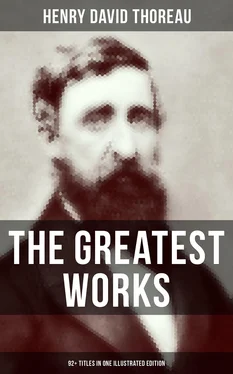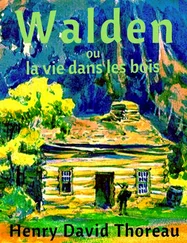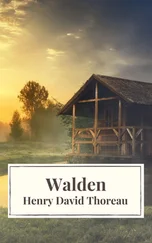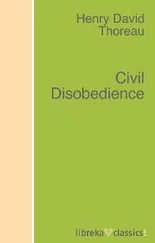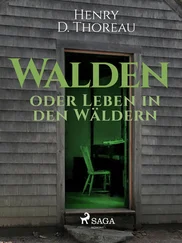Yet, for my part, I was never unusually squeamish; I could sometimes eat a fried rat with a good relish, if it were necessary. I am glad to have drunk water so long, for the same reason that I prefer the natural sky to an opium-eater’s heaven. I would fain keep sober always; and there are infinite degrees of drunkenness. I believe that water is the only drink for a wise man; wine is not so noble a liquor; and think of dashing the hopes of a morning with a cup of warm coffee, or of an evening with a dish of tea! Ah, how low I fall when I am tempted by them! Even music may be intoxicating. Such apparently slight causes destroyed Greece and Rome, and will destroy England and America. Of all ebriosity, who does not prefer to be intoxicated by the air he breathes? I have found it to be the most serious objection to coarse labors long continued, that they compelled me to eat and drink coarsely also. But to tell the truth, I find myself at present somewhat less particular in these respects. I carry less religion to the table, ask no blessing; not because I am wiser than I was, but, I am obliged to confess, because, however much it is to be regretted, with years I have grown more coarse and indifferent. Perhaps these questions are entertained only in youth, as most believe of poetry. My practice is “nowhere,” my opinion is here. Nevertheless I am far from regarding myself as one of those privileged ones to whom the Ved refers when it says, that “he who has true faith in the Omnipresent Supreme Being may eat all that exists,” that is, is not bound to inquire what is his food, or who prepares it; and even in their case it is to be observed, as a Hindoo commentator has remarked, that the Vedant limits this privilege to “the time of distress.”
Who has not sometimes derived an inexpressible satisfaction from his food in which appetite had no share? I have been thrilled to think that I owed a mental perception to the commonly gross sense of taste, that I have been inspired through the palate, that some berries which I had eaten on a hillside had fed my genius. “The soul not being mistress of herself,” says Thseng-tseu, “one looks, and one does not see; one listens, and one does not hear; one eats, and one does not know the savor of food.” He who distinguishes the true savor of his food can never be a glutton; he who does not cannot be otherwise. A puritan may go to his brown-bread crust with as gross an appetite as ever an alderman to his turtle. Not that food which entereth into the mouth defileth a man, but the appetite with which it is eaten. It is neither the quality nor the quantity, but the devotion to sensual savors; when that which is eaten is not a viand to sustain our animal, or inspire our spiritual life, but food for the worms that possess us. If the hunter has a taste for mud-turtles, muskrats, and other such savage tidbits, the fine lady indulges a taste for jelly made of a calf’s foot, or for sardines from over the sea, and they are even. He goes to the mill-pond, she to her preserve-pot. The wonder is how they, how you and I, can live this slimy, beastly life, eating and drinking.
Our whole life is startlingly moral. There is never an instant’s truce between virtue and vice. Goodness is the only investment that never fails. In the music of the harp which trembles round the world it is the insisting on this which thrills us. The harp is the travelling patterer for the Universe’s Insurance Company, recommending its laws, and our little goodness is all the assessment that we pay. Though the youth at last grows indifferent, the laws of the universe are not indifferent, but are forever on the side of the most sensitive. Listen to every zephyr for some reproof, for it is surely there, and he is unfortunate who does not hear it. We cannot touch a string or move a stop but the charming moral transfixes us. Many an irksome noise, go a long way off, is heard as music, a proud, sweet satire on the meanness of our lives.
We are conscious of an animal in us, which awakens in proportion as our higher nature slumbers. It is reptile and sensual, and perhaps cannot be wholly expelled; like the worms which, even in life and health, occupy our bodies. Possibly we may withdraw from it, but never change its nature. I fear that it may enjoy a certain health of its own; that we may be well, yet not pure. The other day I picked up the lower jaw of a hog, with white and sound teeth and tusks, which suggested that there was an animal health and vigor distinct from the spiritual. This creature succeeded by other means than temperance and purity. “That in which men differ from brute beasts,” says Mencius, “is a thing very inconsiderable; the common herd lose it very soon; superior men preserve it carefully.” Who knows what sort of life would result if we had attained to purity? If I knew so wise a man as could teach me purity I would go to seek him forthwith. “A command over our passions, and over the external senses of the body, and good acts, are declared by the Ved to be indispensable in the mind’s approximation to God.” Yet the spirit can for the time pervade and control every member and function of the body, and transmute what in form is the grossest sensuality into purity and devotion. The generative energy, which, when we are loose, dissipates and makes us unclean, when we are continent invigorates and inspires us. Chastity is the flowering of man; and what are called Genius, Heroism, Holiness, and the like, are but various fruits which succeed it. Man flows at once to God when the channel of purity is open. By turns our purity inspires and our impurity casts us down. He is blessed who is assured that the animal is dying out in him day by day, and the divine being established. Perhaps there is none but has cause for shame on account of the inferior and brutish nature to which he is allied. I fear that we are such gods or demigods only as fauns and satyrs, the divine allied to beasts, the creatures of appetite, and that, to some extent, our very life is our disgrace. —
“How happy’s he who hath due place assigned
To his beasts and disafforested his mind!
. . . . . . .
Can use this horse, goat, wolf, and ev’ry beast,
And is not ass himself to all the rest!
Else man not only is the herd of swine,
But he’s those devils too which did incline
Them to a headlong rage, and made them worse.”
All sensuality is one, though it takes many forms; all purity is one. It is the same whether a man eat, or drink, or cohabit, or sleep sensually. They are but one appetite, and we only need to see a person do any one of these things to know how great a sensualist he is. The impure can neither stand nor sit with purity. When the reptile is attacked at one mouth of his burrow, he shows himself at another. If you would be chaste, you must be temperate. What is chastity? How shall a man know if he is chaste? He shall not know it. We have heard of this virtue, but we know not what it is. We speak conformably to the rumor which we have heard. From exertion come wisdom and purity; from sloth ignorance and sensuality. In the student sensuality is a sluggish habit of mind. An unclean person is universally a slothful one, one who sits by a stove, whom the sun shines on prostrate, who reposes without being fatigued. If you would avoid uncleanness, and all the sins, work earnestly, though it be at cleaning a stable. Nature is hard to be overcome, but she must be overcome. What avails it that you are Christian, if you are not purer than the heathen, if you deny yourself no more, if you are not more religious? I know of many systems of religion esteemed heathenish whose precepts fill the reader with shame, and provoke him to new endeavors, though it be to the performance of rites merely.
I hesitate to say these things, but it is not because of the subject — I care not how obscene my words are — but because I cannot speak of them without betraying my impurity. We discourse freely without shame of one form of sensuality, and are silent about another. We are so degraded that we cannot speak simply of the necessary functions of human nature. In earlier ages, in some countries, every function was reverently spoken of and regulated by law. Nothing was too trivial for the Hindoo lawgiver, however offensive it may be to modern taste. He teaches how to eat, drink, cohabit, void excrement and urine, and the like, elevating what is mean, and does not falsely excuse himself by calling these things trifles.
Читать дальше
